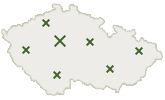EUDA news
Prevention toolkit
Prevention toolkit — a new one-stop shop for EMCDDA prevention materials
The EMCDDA is launching today a new Prevention toolkit, bringing together all of its key prevention-related materials to date. Part of the agency’s toolkit series, this new resource is aimed at anyone involved in shaping decisions, opinions and policies in Europe in the science-based prevention of substance use. The toolkit is centred around four key existing prevention resources, all brought together in a one-stop-shop for easy access:
30.03.2022
Read more
EMCDDA releases new European miniguides on responding to drug use in specific settings
An important approach to the implementation of health and social responses to drug problems can be to focus interventions on the specific settings where problems may occur. For this reason, the EMCDDA’s Health and social responses to drug problems: a European guide includes a set of miniguides devoted to this topic. This week, the agency is releasing the first three miniguides in this bundle, which explore workplace, community and recreational settings.
28.03.2022
Read more
New phase of EU Central Asian Drug Action Programme (CADAP) celebrated today
The latest phase of the EU-funded Central Asian Drug Action Programme (CADAP 7), is celebrated today in Bishkek (Kyrgyzstan). The EMCDDA is participating in the official launch ceremony as one of the EU agencies providing ad hoc support to the programme until 2024 (1).
CADAP is a drug demand reduction initiative designed to promote the development of effective, comprehensive drug policies, based on scientific evidence and best practice.
29.03.2022
Read more
Hair drug testing — an innovative method for monitoring drug use
The EMCDDA uses a variety of methods and tools to monitor prevalence and patterns of drug use in the general population in Europe. One innovative new approach being trialled by the agency is hair drug testing, which can detect illicit drugs and their breakdown products (metabolites) in hair. The method involves collecting hair samples from volunteers and analysing them for traces of substances which may have recently been consumed.
28.03.2022
Read more
Penalties for drug law offences in Europe ‘at a glance’ — new countries added to online tool
How do countries’ laws deal with offences relating to drug use, possession for personal use or supply? Find out more in the EMCDDA’s 'Penalties at a glance' tool, which allows for comparisons of legal measures in place in up to five countries at a time.
24.03.2022
Read more
Risk assessment of new psychoactive substances (NPS)
European Commission adopts measures to control two harmful new drugs amidst health concerns and surge in supply
Today, the European Commission has adopted measures to control two harmful new psychoactive substances (NPS) across the EU (1). The substances in question —
3-methylmethcathinone (3-MMC) and 3-chloromethcathinone (3-CMC) — are both synthetic cathinones, which have been raising concerns in Europe. The delegated act follows risk assessments conducted by the EU drugs agency (EMCDDA) in November 2021 (2) as part of a three-step legal procedure designed to respond to potentially threatening new drugs available on the market (3).
18.03.2022
Europe’s response to new psychoactive substances
Read more
Report on the risk assessment of 1-(3-chlorophenyl)-2-(methylamino)propan-1-one (3-chloromethcathinone, 3-CMC) in accordance with Article 5c of Regulation (EC) No 1920/2006 (as amended)
Report on the risk assessment of 2-(methylamino)-1-(3-methylphenyl)propan-1-one (3-methylmethcathinone, 3-MMC) in accordance with Article 5c of Regulation (EC) No 1920/2006 (as amended)
Latest wastewater data reveal drug-taking habits in 75 European cities in a record 25 countries — increases in detections of most drugs studied
The 2021 findings from the largest European project in the science of wastewater analysis are revealed today in Wastewater analysis and drugs — a European multi-city study, published by the Europe-wide SCORE group, in association with the EU drugs agency (EMCDDA) (1)(2). The project analysed wastewater in 75 European cities from 25 countries (23 EU + TR and NO) to explore the drug-taking behaviours of their inhabitants.
16.03.2022
New study on wastewater analysis puts city drug use in the spotlight
Read more
EU solidarity with Ukraine
The EU stands united in its solidarity with Ukraine and will continue to support Ukraine and its people through political, financial and humanitarian support. The EU has reacted swiftly and decisively to Russia's aggression and has responded with restrictive measures. Ongoing and planned bilateral engagement between the EMCDDA and representatives of Russia and Belarus has been suspended with immediate effect.
07.03.2022
Read more
EU Justice and Home Affairs agencies’ joint statement on Ukraine
The EU Justice and Home Affairs (JHA) agencies support the work of the EU institutions and Member States as they help Ukraine and its people now that war once again touches Europe.
07.03.2022
Read more



